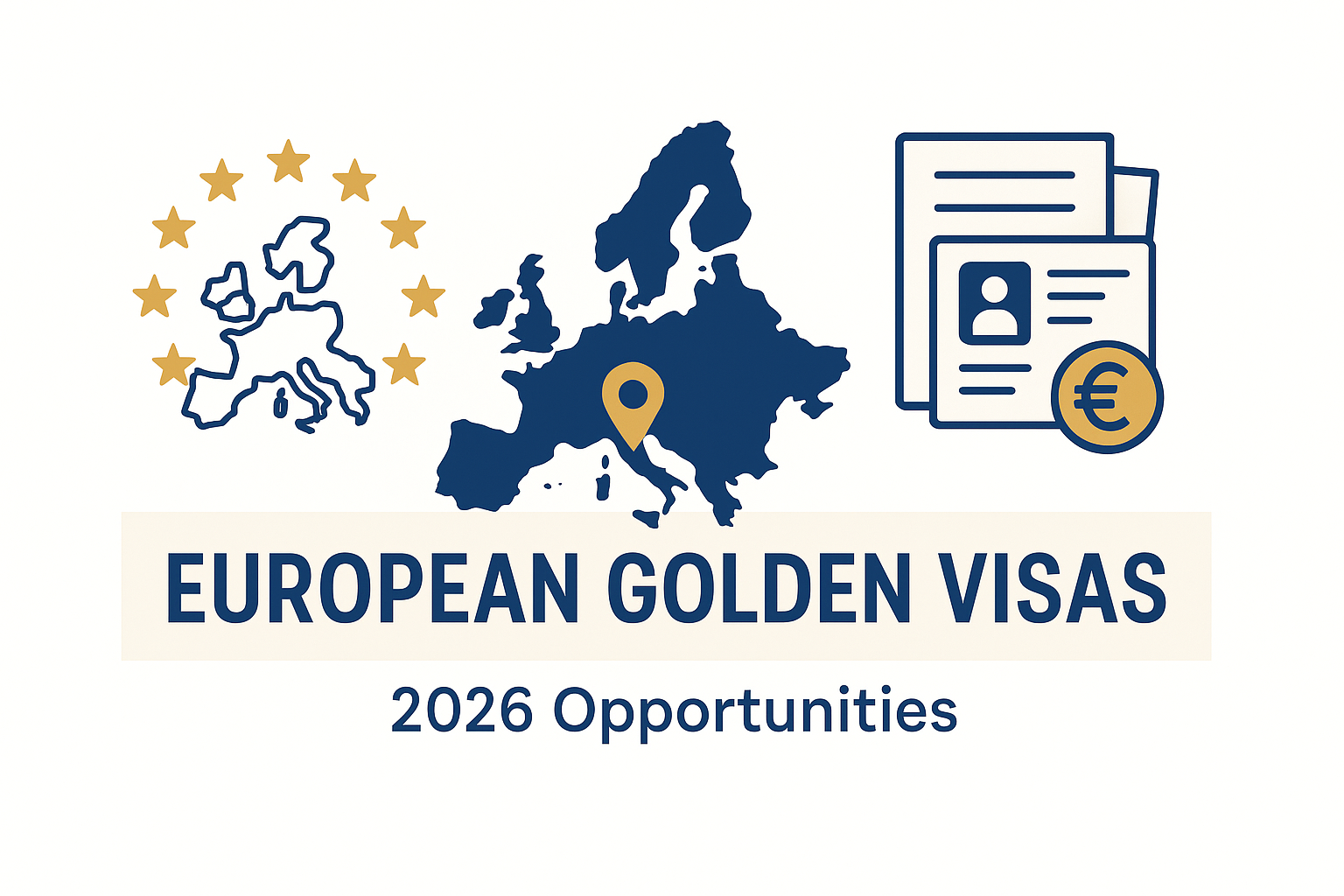The landscape of European golden visa programs has shifted dramatically over the past two years, and 2026 marks a pivotal moment for anyone considering a European residency by investment program. I've been tracking these changes closely, and I want to give you the real picture—not the sanitized version that some agencies promote.
What's Changed in 2026?
Portugal's golden visa program—once the go-to option for Americans and tech workers—tightened significantly starting in January 2026. The minimum investment increased from €250,000 to €500,000 for real estate purchases, with government bonds and VC funds now required at €800,000. This was a shock to many people who had been planning their applications for months.
Greece jumped into the spotlight by lowering their program threshold. In 2026, you can still secure a golden visa with just a €250,000 real estate investment in Athens (€500,000 in other areas). The processing time? Around 6-9 months, which is genuinely fast compared to alternatives.
My Top Pick for 2026: Greece
Here's why Greece makes sense right now. First, the cost is competitive. Second, the EU residency is immediate—you get your visa issued directly, no waiting periods. Third, the real estate market in Athens is genuinely undervalued compared to Western European cities. You're not just getting residency; you're making a legitimate real estate investment.
I've talked to about thirty people who went through the Greek golden visa process in 2024-2025, and the experience has been remarkably smooth for most. The Athenian neighborhoods like Kolonaki, Plaka, and Pangrati are genuinely beautiful places to potentially spend time. Unlike some golden visa recipients who treat their property purely as an investment vehicle, people actually enjoy visiting their Greek properties.
What About Malta?
Malta's residency by investment program changed in 2026 as well. You're looking at €250,000 minimum investment through their new structure. Processing time is about 4-6 months, making it one of the fastest. However, Malta is crowded—genuinely crowded. If you want space and authenticity, Malta might feel overwhelming. It's efficient and quick, but you need to appreciate the island lifestyle to enjoy it long-term.
The Spanish Reality Check
Spain's digital nomad visa has become increasingly popular, and for good reason. If you're a remote worker with an income of €2,000+ monthly and you don't have EU citizenship, you can get a 1-year renewable visa. The cost is minimal—just visa processing fees around €100-200. The downside? After one year, you need to renew, and there's no guarantee of acceptance indefinitely.
What many people don't realize is that Spain's traditional investment visa (€500,000 business investment) is rarely granted. It exists on paper, but it's extremely competitive and requires detailed business plans and job creation targets. Don't expect this route to work easily.
Italy's Emerging Option
Italy introduced an elective residency visa in 2026 that's worth considering. You need to show about €31,000 USD annually in income (can be from retirement, investments, or remote work). The visa is valid for 2 years and renewable. The beauty? You get to live in Italy at a much lower cost than northern Europe. Processing is relatively straightforward—around 2-3 months.
I've spoken with several digital nomads and early retirees taking this route. The appeal is clear: you get European residency, access to Italian healthcare after a few months, and the cost of living outside major cities is genuinely affordable.
2026 Strategy: What I'd Do
If I had €250,000-500,000 today and wanted European residency, I'd seriously consider Greece right now. The value proposition is strong, the real estate is solid, and the residency comes quickly. If I wanted something faster and didn't want real estate, I'd look at Malta. If I was a remote worker, I'd use Spain's digital nomad visa as a gateway while exploring longer-term options.
The golden visa landscape in 2026 is actually more diverse and accessible than people think. You don't need a million euros anymore—though that certainly helps.

